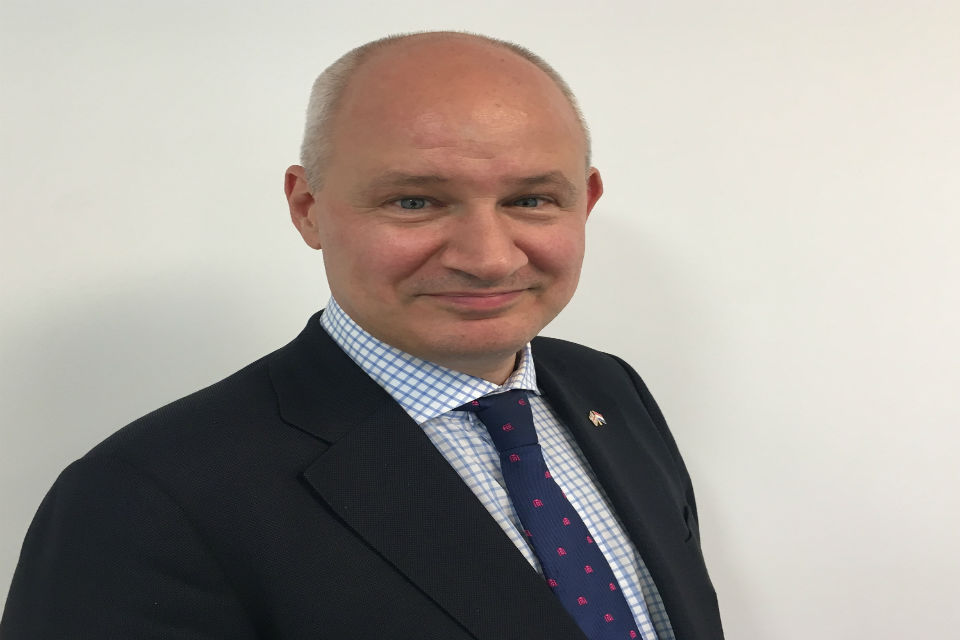86th Session of the OPCW Executive Council
Statement by H.E. Ambassador Peter Wilson, UK Permanent Representative to the Organisation for the Prohibition of Chemical Weapons.

Thank you Mr Chair,
The United Kingdom supports the statement made by the Ambassador of Estonia on behalf of the European Union.
We commend your work, Mr Chair, to steer the Executive Council through the selection process for the next Director General, and thank you for your warm welcome yesterday. This organisation is being superbly served by Ahmet Uzumcu. We believe that we have a strong successor in Ambassador Fernando Arias of Spain, and hope that the Executive Council will agree his nomination by consensus.
In other positive developments, the successful completion of the verified destruction of the Russian Federation’s declared chemical weapons stockpile underscores the global commitment to rid the world of chemical weapons. The UK was pleased to contribute funding and expertise to support Russia’s work. We also welcome the progress made by the Iraqi authorities to destroy the final remnants of Saddam Hussein’s era chemical weapon stockpile at the Al Muthana complex.
Unfortunately, despite this progress, the Chemical Weapons Convention and the norms that underpin it face significant challenge. In the last year alone this Council has witnessed:
- regular credible reports of the use of chemical weapons by state actors in Syria, and an attack in Malaysia against a DPRK national;
- multiple reports of chemical weapons attacks by Daesh linked terrorists in Iraq; and
- insidious attempts to undermine the credibility of the OPCW, including by attacking the OPCW’s technical competence and integrity, and attempts to limit the Conference of States Parties’ engagement with civil society;
For more than four years, we have seen the devastating impact of continued chemical weapons use in Syria. Sarin has been used with horrific effect in Ghouta in 2013 and in Khan Sheikhoun in April this year. Sarin has now been found in samples from Al-Lataminah, close to Khan Sheikhoun, following credible reports of an attack there on 30 March. The OPCW-UN Joint Investigative Mechanism confirmed that the Syrian regime used chlorine as a weapon three times in 2014-15, and that Daesh used sulphur mustard on one occasion in 2015. No one has yet been brought to justice for these crimes. All perpetrators must be held to account – however long that takes. We have full confidence in the professionalism and dedication of the JIM and FFM and look forward to their upcoming reports.
Mr Chair,
Use of chemical weapons is a grave violation of the Chemical Weapons Convention. Yet this is just one of the issues where Syria has failed to comply. The Convention, UN Security Council resolutions and this Executive Council all require Syria to produce a comprehensive declaration of its chemical weapons programme. The Technical Secretariat has worked tirelessly to uncover the truth, in the face of Syrian obstruction contrary to what we have just heard from the Syrian Ambassador. Despite four years of engagement, there has been minimal progress. The Director General reported last week evidence of “potential undeclared chemical weapons activities involving production or weaponisation of chemical agent” in Syria, and that he could not verify that the Syrian Declaration was accurate or complete.
Syria’s response to the findings of such respected international bodies is to deny reality and forensic evidence. The Syrian Regime has failed to engage appropriately with the Technical Secretariat to answer the long list of serious questions about gaps, inconsistencies and anomalies in its chemical weapons programme declaration. We’ve heard this morning further denial of scientific reality from the Syrians, they still refuse to engage meaningfully with the OPCW’s findings that show agents present at facilities which have not been declared, and types of chemical warfare agent that Syria has not declared at all. After more than four years, the only conclusion can be that Syria has not declared or destroyed all of its chemical weapons. The Syrian Regime has continued to use chemical weapons against its own people, and continues to pose a significant chemical threat.
Chemical weapons use is not confined to Syria. In Malaysia, an assassination in February using the nerve agent VX shocked the world. We note that court proceedings have started in Malaysia to examine the circumstances that led to the death of a North Korean national at Kuala Lumpur International Airport 2. We thank Malaysia for the helpful update that they provided to this Council yesterday, and encourage Malaysia to continue to inform the Executive Council about their investigation.
It is not just state programmes that demand this Council’s attention. All of us must work to ensure that terrorists cannot develop chemical weapons capabilities. We hope that this Council will adopt the draft decision proposed by the US and Germany to combat chemical terrorism.
We remain deeply concerned that Daesh retains the capability and intent to use chemical weapons. We welcome the Technical Secretariat’s work with Iraq to deal with the chemical threat that they face, including by supporting Iraqi investigations into chemical weapons use. We encourage both Iraq and the Technical Secretariat to keep the Executive Council informed of their work.
Finally, we have all acknowledged that to enhance the global fight against chemical weapons we need to engage a wide range of stakeholders, from industry to civil society. The UK welcomed the 2013 Review Conference decision to open the annual Conference of States Parties to civil society groups. We share the concerns voiced yesterday by Canada, Switzerland and the Netherlands that a number of NGOs have been refused accreditation to attend this year’s CSP, based purely on the objections of one or two states. No reasons have been given for the decision to refuse accreditation. In our view, the exclusion of ECOSOC accredited NGOs from the Conference of States Parties harms the reputation of states and the OPCW. We should be at the forefront of transparency as an International Organisation, not a backmarker. Our work is too important to hide.
Thank you Mr Chair